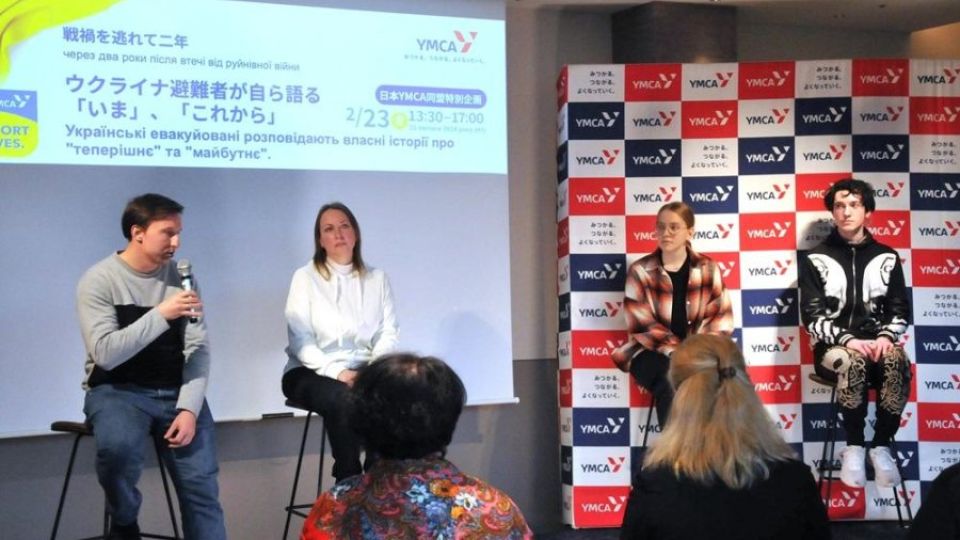February 26, 2024
TOKYO – Ukrainian evacuees staying in Japan are growing increasingly anxious about their future as Russia’s war in Ukraine grinds into its third year and their stay here lengthens, a survey by the National Council of YMCAs of Japan has found.
As of Feb. 22, there were 2,099 Ukrainian evacuees staying in Japan, according to the Immigration Services Agency.
In the council’s online survey, conducted in January with 153 respondents, around 76% said they were “very satisfied” with life in Japan. However, about 95% expressed “significant” or “some” anxiety about their future. The primary concerns among respondents were related to paying rent after housing aid expires, followed by securing stable jobs and learning Japanese.
According to the council’s Yuria Yokoyama, the organization began receiving more questions from evacuees worried about their future in 2023. Questions included, “I’m working hard at my part-time job, but should I quit so that I can learn more Japanese and secure a better job in the future?” and “I’m considering inviting my Ukrainian family to Japan, but will I be able to make enough of a living to support them here?” Yet another was, “My children are studying both in online classes based in Ukraine and in school in Japan, but how long should we continue living like this?”
At a meeting organized by the council in Tokyo on Friday so that Ukrainian evacuees and their supporters could share their thoughts and experiences, Yokoyama reflected, “Since last summer, I have sensed many evacuees starting to prepare for a prolonged evacuation in Japan.”
In the survey, when respondents were asked what they would like to do when the war ends, nearly 90% said they would “try to settle in Japan” or “stay [in Japan] for the time being and see how things develop.” They cited such reasons for their choice as the security and peace of Japan, their children’s growing proficiency in Japanese, and the security risks posed by Russia.
At Friday’s meeting, one of the evacuees was a 16-year-old girl from the southern Zaporizhzhia region, now studying at a Japanese junior high school while learning Japanese after hours and also continuing her Ukrainian school studies online.
“I want to go to high school,” she said. “When I’m in Japan, I feel very much alive. I hope to live every day to the fullest and make memories that I won’t forget.”
There was also a 19-year-old from Kyiv, who fled to Japan alone is currently studying at a Japanese language school. He hopes to enroll at a high school, advance to university and eventually work for the Japan Aerospace Exploration Agency. Although he is highly motivated, life here has had its challenges.
“I’m looking for Japanese friends every day,” he said. “But it can be difficult because Japanese people think I’ll return to Ukraine someday.” He added that this can make him feel alienated.
Iryna Hrybachova, a 41-year-old Ukrainian lawyer from the northern Sumy region, said, “To enroll in a high school or university in Japan, you have to have a very good command of Japanese, and you have to pass a very competitive entrance exam. Unfortunately, however, few [Ukrainian evacuees] succeed. This is creating a situation where Ukrainian teenagers return to their homeland to pursue their education in the face of potential danger.”

